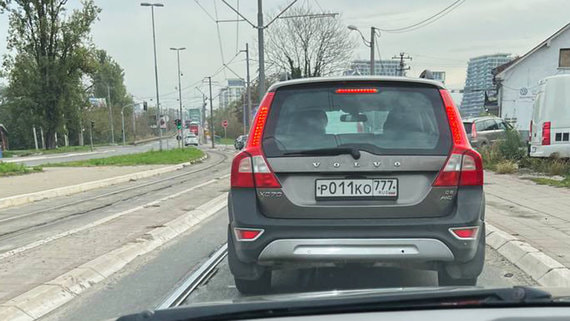The European Parliament called on not to take away cars from Russians
[ad_1]

The European Parliament (EP) called on the European Commission (EC) to reconsider its interpretation of sanctions leading to the confiscation of personal items and cars of Russians entering the EU. This is stated in the resolution published on November 9. This, according to the EP, “discredits” the sanctions.
This is the only point out of 25 that calls for easing sanctions. Others call for tightening them or express concern that the damage to the Russian economy is not enough. MEPs propose a complete ban on the sale and cutting of Russian diamonds, a ban on the import of Russian liquefied natural gas (LNG) and partnership with Arctic LNG 2, and also demand that sanctions be imposed on Rosatom, Gazprombank and its subsidiaries.
The EP’s calls for tougher sectoral sanctions are not new, notes Ivan Timofeev, Director General of the Russian International Affairs Council. This obviously reflects the demands of countries known for their desire to limit Rosatom, Gazprombank and Alrosa: Poland and the Baltic countries. But Belgium, Bulgaria, Hungary and other countries are interested in doing business with these companies, so their inclusion in the 12th package of sanctions is not guaranteed.
The only point about mitigation refers to the EC clarification of September 8. It prohibits the import from Russia to the EU of goods listed in Annex XXI to EU Directive No. 833/2014, regardless of the purpose for which they are used and the period of stay in the EU.
Vehicles with a seating capacity of less than 10 were classified as prohibited goods, regardless of “whether the use of the vehicle is private or commercial.” The list also contains a wide range of other items – from mobile phones and office equipment to suitcases and personal care products. By the end of September, all EU member countries bordering Russia introduced a ban on Russians crossing their borders in private vehicles. Later, Bulgaria and non-EU Norway joined these restrictions.
According to Timofeev, for an external observer, the September interpretation of the EC regulations with the possibility of confiscation of cars and personal hygiene products looked ridiculous. “The fact that individual Eastern and Northern European EU member states implemented this clarification so quickly raises questions. It is all the more unexpected that the European Parliament in this particular point showed elements of common sense, which, obviously, reflected the opinion of Western European countries,” the expert believes.
But there are no real precedents when European parliamentarians could influence the EC and change sanctions acts; these documents do not contain references to EP resolutions, notes Sergei Glandin, head of compliance and sanctions law practice at BGP Litigation.
The adopted resolution is a combination of five resolutions previously submitted by various parliamentary groups, says Anton Namenov, senior partner at Pen & Paper. As for the call to abandon the confiscation of personal belongings, such a measure did reduce confidence in the EU sanctions regime, he says. The EC is obliged to consider the EP resolutions within three months from the date of receipt and either take them into account, possibly selectively, or refuse it without giving reasons, the lawyer says.
According to Timofeev, the likelihood of a new mitigating clarification from the EC regarding the personal property of Russians is still possible. In his opinion, the range of goods prohibited for transportation or their quantity may be reduced – for example, this may affect smartphones, motor oils, wheels. “At the same time, such an EP resolution is beneficial to the EC in any case, regardless of whether it is taken into account or not: it demonstrates the existence of a discussion on this item. Moreover, law enforcement takes place at the national level, the European bureaucracy only sets the framework that other states interpret themselves,” concludes Timofeev.
[ad_2]
Source link








